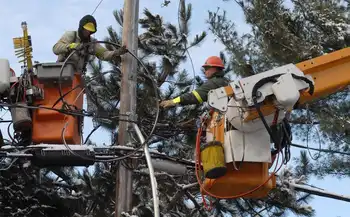Hydro-QuebecÂ’s green export plans
By New York Times
CSA Z462 Arc Flash Training - Electrical Safety Essentials
Our customized live online or in‑person group training can be delivered to your staff at your location.

- Live Online
- 6 hours Instructor-led
- Group Training Available
According to the terms of the $4.4 billion deal, Hydro-Quebec — Canada’s largest electricity generator — will acquire the assets of New Brunswick Power, including the Pointe Lepreau nuclear generating station and large transmission lines with links to the United States electric grid.
After the transaction closes in March, Hydro-Quebec’s chief executive, Thierry Vandal, told Green Inc., there will be “more renewable, clean power flowing into New England from Quebec.”
The utility currently exports about $940 billion million of electricity to the United States each year, mainly to New England as well as New York, Pennsylvania, New Jersey and Maryland.
The New Brunswick inter-ties will add at least another 10 percent, or 500 megawatts, Mr. Vandal predicts, although that figure is likely to grow with renewed investment in transmission grids.
Immediately after the acquisition was unveiled, Angie OÂ’Connor, president of the New England Power Generators Association, warned that the deal could harm smaller American utilities looking to develop renewable energy projects.
“It’s monopoly in the purest sense, and I don’t think that’s supportive of competition,” she told The Rutland Herald in Vermont.
Maine’s governor, John Baldacci, called for a meeting with Quebec’s premier, Jean Charest, The Canadian Press reported. “I wouldn’t say that we’re alarmed at this point, but certainly we want to gather more information and have a better understanding of what the potential impacts will be,” said the governor’s deputy chief of staff, David Farmer.
New Brunswick Power traditionally relied on heavy-oil generating facilities, but Mr. Vandal says these are being phased out as the province moves to cleaner power from Quebec and other sources.
The nuclear station is currently being refurbished and is due to re-open in late 2010, but Mr. Vandal said nuclear expansion was not on the company’s radar. “Right now, from our perspective, new-build nuclear is economically challenged,” he said.
Hydro-Quebec is no stranger to controversy: its large James Bay dams incited protests on both sides of the border. And the provinceÂ’s relations with neighboring Newfoundland and Labrador have long been strained because of control conflicts over hydropower resources.
But Mr. Vandal said the utilityÂ’s strategy going forward was to develop 4,000 megawatts of large-scale wind farms in conjunction with several new hydroelectric dams equipped with storage reservoirs that stabilize supply on low-wind days.
“You can’t balance wind with small run-of-the-river hydro,” he said.











